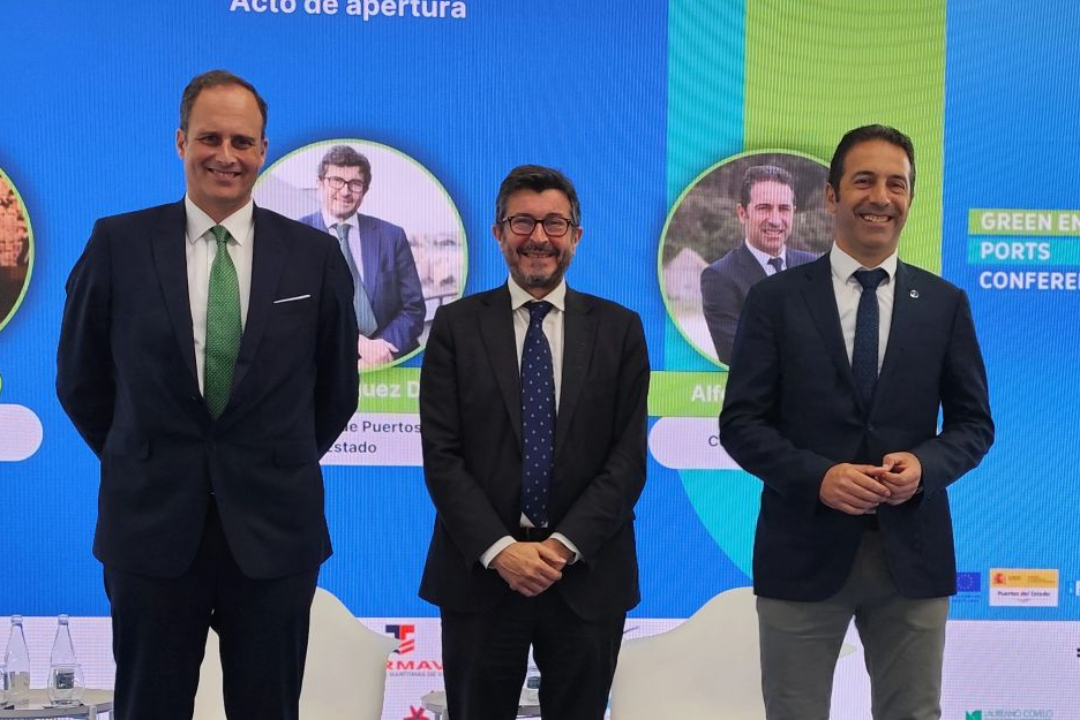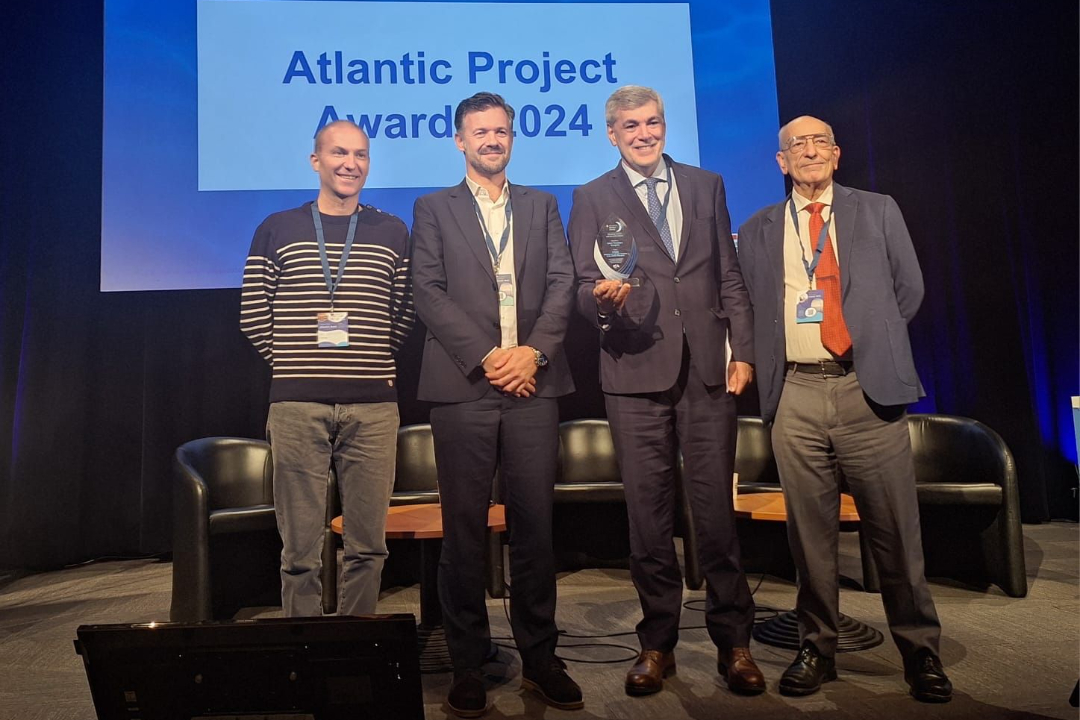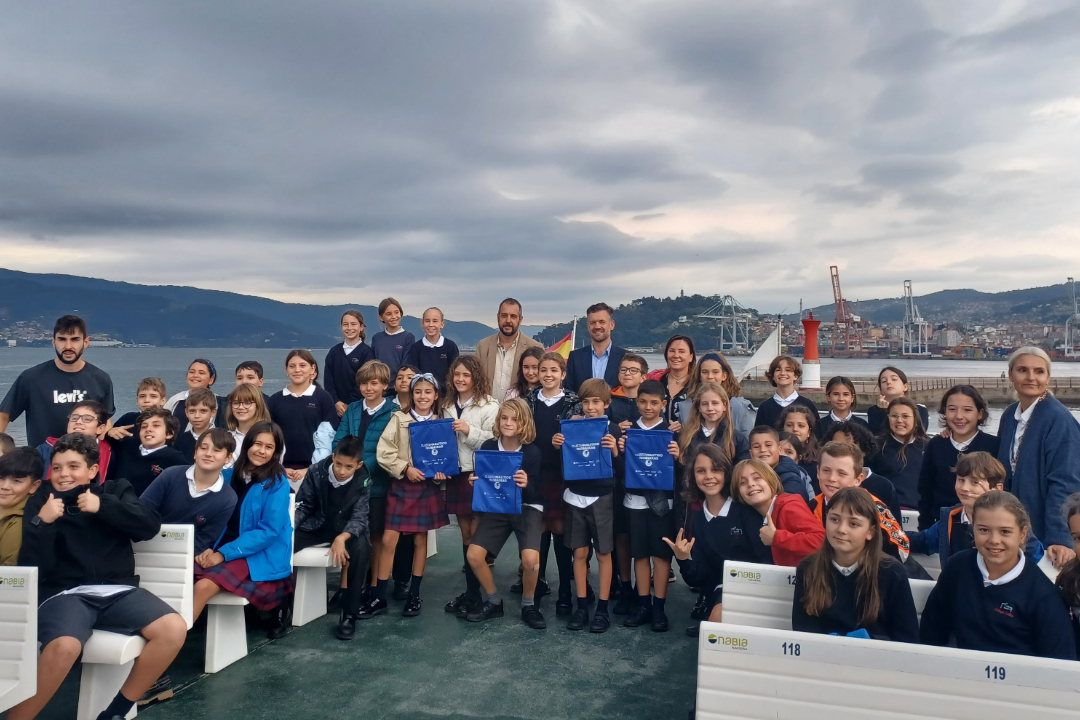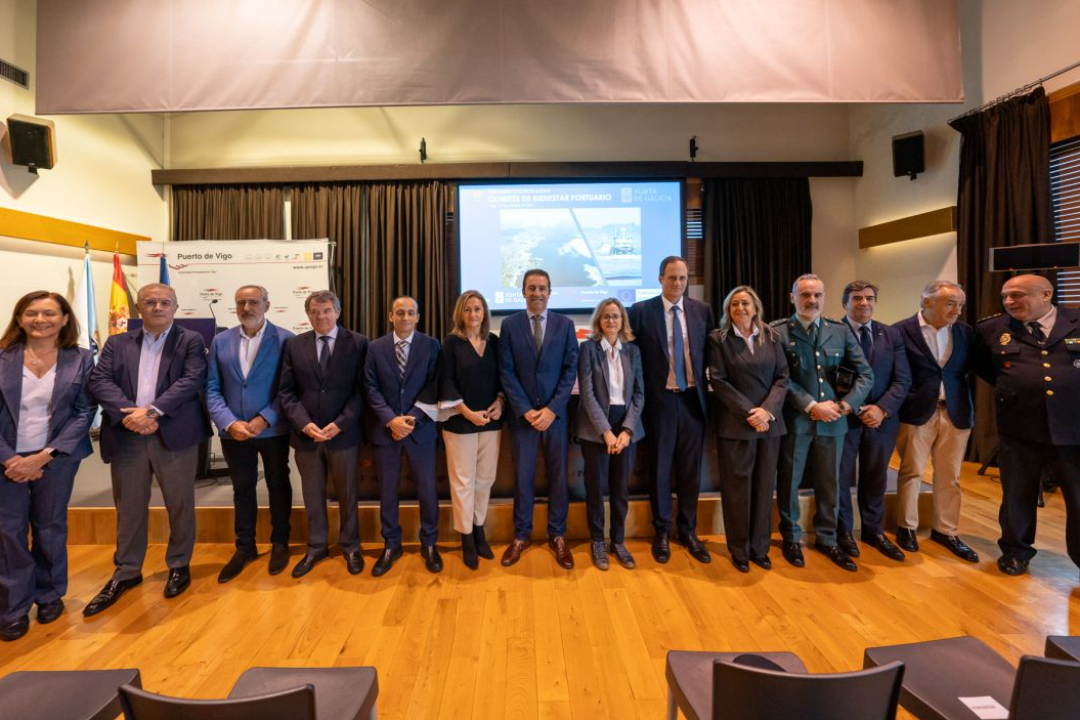THE PORT OF VIGO WILL HOST A NEW EDITION OF THE INTERNATIONAL "GREEN ENERGY PORTS" CONFERENCE TODAY AND TOMORROW.
Jun 18, 2024, 12:00:00 PM

Following the success of previous editions, the Port Authority of Vigo will host the 5th edition of the "Green Energy Ports Conference" today and tomorrow. This is a high-level international conference organized by the Port Authority itself, with the support of Puertos del Estado, the Xunta de Galicia, the European Sea Ports Organization (ESPO), the International Association of Ports and Harbors (IAPH), and the Worldwide Network of Port Cities (AIVP).
This year, the "Green Energy Ports Conference" will feature the participation of more than twenty ports, both Spanish and European, with extensive experience in the use of clean energy, as well as international organizations such as the European Sea Ports Organization (ESPO), the International Association of Ports and Harbors (IAPH), representatives of the EU’s Atlantic Action Plan, the European Marine Board – the main European expert group on marine science policy – and France Energies Marines – an organization focused on energy transition and dedicated to marine renewable energy.
Puertos del Estado will lead the attendance of various delegations from Spanish ports such as A Coruña, Huelva, Cartagena, Barcelona, Santander, Algeciras, Melilla, Seville, Tarragona, Málaga, Las Palmas, Valencia, Ceuta, Bilbao, Ferrol, Marín, Vilagarcía, and, of course, Vigo and its Port Community, who will share insights with representatives from the Ports of Hamburg, Lisbon, and Riga.
Additionally, this new edition of the "Green Energy Ports Conference" will include the participation of shipping companies UECC, Suardiaz, and Baleària, the Universities of Vigo, A Coruña, and Hamburg, and the Biodiversity Foundation – an agency under the Ministry for Ecological Transition and Demographic Challenge – as well as officials from various companies related to green energy.
Four Key Themes
The 5th edition of the GEPC will revolve around four key themes: the decarbonization of the maritime fleet, new fuels and the role of ports in this transition towards cleaner energy; green infrastructure, with docks integrated into ecosystems and cities; the strategic framework of Puertos del Estado, emphasizing the role of innovation and sustainability of Spanish ports and their integration into the strategic plans of various Port Authorities; and the circular economy, maximizing the use of materials and waste.
A Grand Opening
The first day of the Conference, held throughout today in the "El Tinglado del Puerto" hall, was inaugurated early this morning by the Regional Minister of the Sea, Alfonso Villares; the President of Puertos del Estado, Álvaro Rodríguez Dapena; and the head of the Vigo Port Authority, Carlos Botana.
In his speech, the head of the Vigo Port Authority emphasized that Spanish ports are leaders in Europe in sustainability and innovation, while noting that "sustainability is not at odds with being an efficient port." He also highlighted the importance of awareness, as "ports can be great ambassadors for environmental protection and sustainability among young people." In this regard, he recalled the institution’s commitment to regenerating the seabed of the port, estimating that around 300 tons of marine waste will be removed by the end of the year.
In the same vein, he highlighted that the Port of Vigo has reduced its energy consumption by 26%, its carbon footprint by 70%, and the carbon footprint of the entire port by 42%, while also promoting the implementation of renewables for self-consumption. He also advocated for actions to improve biodiversity.
For his part, the President of Puertos del Estado emphasized "the opportunity provided by these types of events, successfully driven by the Port of Vigo, to establish a space of understanding from which mutual commitments to co-develop initiatives and projects that contribute both to the sustainability of the port's development and operation on a micro scale and to the contribution of ports to an ambitious, pragmatic, and viable energy transition."
Rodríguez Dapena also highlighted the key aspects of the Strategic Framework of the Spanish port system of general interest, which places three dimensions on an equal footing: economic, environmental, and social, with three core elements that are strongly interlinked: "We cannot understand the Green Energy Port without the economic part or the social part, and of course, without the environmental core, which is the main focus of these days." "Ports transport energy and, at the same time, concentrate the capacity to transform it. We are at the forefront of the great transition that we are all heading towards," he stated.
Lastly, the Regional Minister of the Sea, Alfonso Villares, emphasized that "against those who want to make noise and even discredit the sector, we are the ones who work in its defense, supporting measures for greater energy efficiency, sustainability, and competitiveness." In this regard, he pointed out that "data and facts provide and remove reasons," announcing that the Ministry of the Sea will unveil its Blue Economy Agenda in the coming months, in which Portos de Galicia will play "a fundamental role" in coordinating various actions aimed at developing coastal areas.
After the inauguration, this first day will address important topics such as the European Commission's Atlantic Strategy for decarbonizing the maritime fleet, port electrification, climate neutrality and the European Green Deal, alternative energies and new fuels, and the development of marine renewable energies.
Tomorrow, Wednesday, will be the turn of the FAO's Blue Ports Network, funding opportunities to promote sustainability, green port initiatives, biodiversity, blue growth, the implementation of new circular models in ports, and the integration of circularity in port management. The closing ceremony will be led by the President of the Port Authority of Vigo, Carlos Botana, and his counterpart at Portos de Galicia, José Antonio Álvarez.
As complementary activities to the conference, participants will have the opportunity to dive under the waters of the port through the "Nautilus" and visit the Cíes Islands National Park on a trip through the Vigo estuary.
Related projects


